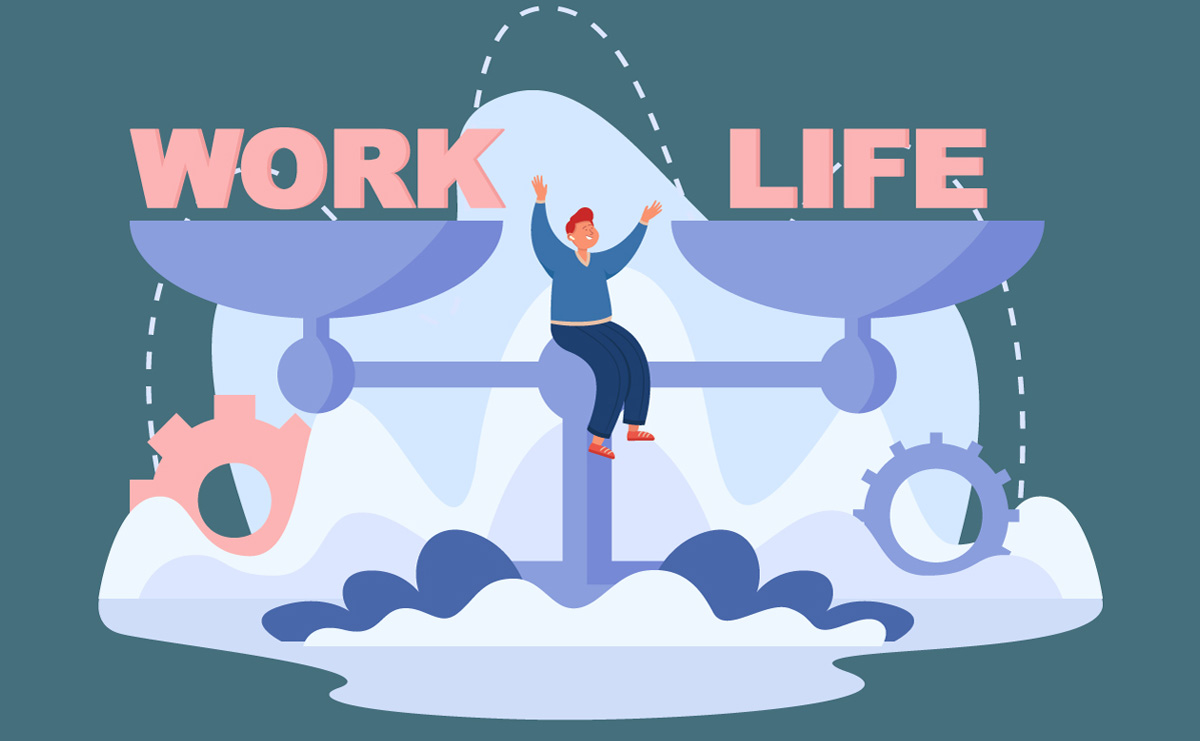Contents
Struggling to Focus at Work? 5 Proven Tips for Lawyers
Lawyers face constant pressure to meet deadlines, manage clients, and handle complex tasks, making it challenging to maintain focus at work. Long hours, frequent interruptions, and repetitive administrative duties often lead to reduced concentration and increased stress. When you cannot focus at work, productivity suffers, and essential details may be overlooked. Understanding how to focus at work starts with identifying the root causes of distraction and mental fatigue. This article outlines five practical tips to help legal professionals regain clarity and control in their daily routines.
Why Lawyers Cannot Focus at Work: Root Causes
I. The Reality of Mental Fatigue in Legal Work
Legal work demands sustained concentration, precision, and decision-making under pressure. Attorneys are often expected to review dense documents, manage multiple cases, and respond quickly to client needs. Over time, this constant cognitive demand leads to mental fatigue, directly affecting the ability to focus at work. Even short lapses in attention can result in costly mistakes or missed deadlines. Unlike physical fatigue, mental exhaustion builds quietly and affects overall performance long before it is recognized.
II. Why Lawyers Struggle More Than Other Professionals
The legal profession uniquely combines high-stakes, long hours, and adversarial environments. Many lawyers operate under strict deadlines and experience frequent interruptions, which disrupt concentration and slow down progress. Unlike other fields, the margin for error in legal work is narrow. When a professional cannot focus at work, it affects their efficiency and the quality and accuracy of legal outcomes. The pressure to perform under these conditions creates a cycle that reinforces distraction and reduces overall productivity.
III. The Hidden Cognitive Load of Legal Practice
Legal professionals often underestimate the invisible weight of the cognitive load. Switching between tasks—client communication, legal research, document drafting, and court preparation—adds layers of mental effort. Each shift requires mental adjustment, which consumes valuable energy. Learning how to focus at work means recognizing these patterns and limiting unnecessary task-switching. Tools that support streamlined workflows and structured routines can help reduce this load and improve cognitive performance throughout the day.
This section has addressed the core reasons lawyers struggle to maintain focus. The following sections will explore specific solutions to address each challenge.
Tip 1: Cut Manual Tasks to Improve Focus at Work
I. The Focus Cost of Repetitive Legal Work
Manual tasks are a major barrier to maintaining consistent focus at work. Activities like drafting standard documents, managing billing entries, or inputting client data consume time and mental energy without contributing to substantive legal progress. While necessary, these tasks fragment attention and reduce the time available for critical thinking and strategic planning. Over time, repetitive work leads to cognitive fatigue, which makes it harder to maintain accuracy and efficiency throughout the day.
II. Examples: Data Entry, Standard Forms, Filing
Many attorneys still rely on outdated processes to complete routine tasks. Manually filling out standard forms, handling physical filings, and updating spreadsheets are examples of work that offers little return on the mental effort required. These activities are prone to human error and take up valuable hours that could be used for client engagement or case preparation. When lawyers cannot focus at work, these low-value tasks become the default activity, creating a false sense of productivity while delaying high-impact work.
III. How Legal Automation Frees Up Mental Bandwidth
Understanding how to focus at work begins with reducing the mental load caused by repetitive responsibilities. Legal automation tools can generate templates, auto-fill client data, and streamline billing, allowing attorneys to redirect their attention to matters that require legal reasoning and judgment. Workflow automation also ensures consistency and reduces the risk of mistakes caused by distraction or fatigue. Legal professionals can preserve mental energy for tasks requiring their expertise by minimizing the number of decisions involved in routine processes.
This section highlights the importance of limiting manual work to regain mental clarity and improve performance. In the next section, we will examine the impact of burnout and how it further impairs concentration in legal settings.
Tip 2: Burnout Is Why You Cannot Focus at Work
I. How Long Hours and Pressure Lead to Burnout
The legal profession is characterized by demanding schedules, high client expectations, and ongoing deadlines. These conditions often force attorneys to work extended hours with limited breaks, leading to physical and emotional exhaustion. Burnout is not a short-term condition; it develops gradually and affects multiple aspects of cognitive functioning. Once burnout sets in, it becomes increasingly difficult to maintain focus at work, even on tasks that were once routine or manageable. The constant mental strain reduces decision-making capacity and impairs attention span.
II. The Impact of Burnout on Attention and Energy
Burnout reduces energy levels and distorts the ability to think clearly. Attorneys affected by burnout may experience memory lapses, a lack of motivation, and a diminished capacity to manage daily responsibilities. These symptoms directly contribute to decreased productivity and increased error rates. When a lawyer cannot focus at work, the cause often lies deeper than simple distraction. Burnout alters brain function, making it difficult to engage in sustained periods of attention or complete complex tasks efficiently.
III. How to Focus at Work by Managing Mental Health
Addressing burnout requires deliberate changes to work habits and overall mental health practices. Understanding how to focus at work begins with recognizing the early signs of fatigue and taking preventive action. This can include setting clear work boundaries, scheduling regular breaks, and incorporating recovery time into the weekly routine. Support systems such as therapy, peer collaboration, or professional coaching also play a role in mitigating the long-term effects of stress. Law firms can contribute by fostering realistic workloads and promoting a culture that values mental well-being.
This section emphasizes the connection between burnout and impaired focus, outlining causes and practical responses. The following section will explore how interruptions further disrupt concentration and how to manage them effectively.

Tip 3: Block Interruptions to Regain Focus at Work
I. How Disruptions Break Cognitive Flow
Interruptions are one of the most frequent and damaging obstacles to sustained focus at work. Whether caused by client calls, internal messages, or unscheduled meetings, each interruption forces the brain to switch contexts. This constant shifting impairs working memory and extends the time needed to complete simple tasks. Over time, frequent disruptions lead to slower response times and increased frustration, making maintaining a productive work rhythm difficult. This cognitive flow loss undermines accuracy and efficiency for attorneys managing complex caseloads.
II. Setting Client and Staff Boundaries
Establishing clear boundaries is essential for minimizing interruptions in a legal environment. Without structure, attorneys often feel pressured to respond to every message immediately, contributing to a cycle where they cannot focus at work for sustained periods. Setting expectations with clients about response times and communicating availability to staff members creates protected time for deep work. Boundaries are not about limiting access but preserving quality—ensuring that focused time is used for tasks requiring legal judgment and concentration.
III. Creating Focus Zones in Your Calendar
One effective strategy for reducing interruptions is using “focus zones”—predefined periods in the calendar designated for uninterrupted work. These blocks, like court appearances or client meetings, should be treated as non-negotiable. During these times, notifications can be silent, doors can be closed, and all attention can be directed to one priority. Knowing how to focus at work means planning your day to create intentional gaps between reactive and proactive tasks. By safeguarding specific hours for concentration, attorneys can complete work more efficiently and reduce mental fatigue.
This section shows how small changes to communication habits and scheduling can significantly improve concentration. Next, we will address the impact of multitasking and how it further undermines mental clarity in legal practice.
Tip 4: Multitasking Is Why You Cannot Focus at Work
I. Why Switching Tasks Kills Focus and Increases Errors
Multitasking is often mistaken for efficiency, especially in legal environments with limited time and high expectations. However, the cognitive cost of switching between tasks significantly reduces the ability to focus at work. Each shift in attention interrupts mental processing, forcing the brain to recalibrate before progress can resume. This lag accumulates daily, leading to slower task completion and higher error rates. Multitasking does not allow for the deep focus required in legal analysis, document review, or strategy planning.
II. The Cost of Constant App and Email Hopping
Digital distractions contribute heavily to fragmented attention. Lawyers who frequently switch between case management systems, email platforms, and client communication tools face an ongoing challenge in maintaining mental clarity. These small but continuous shifts prevent sustained engagement with complex material. When a professional cannot focus at work, the underlying issue is often not a lack of discipline but too many competing stimuli. Reducing the number of simultaneous inputs is critical to improving both output and accuracy.
III. How to Focus at Work by Single-Tasking
Focusing at work begins with committing to one task at a time. This requires prioritizing the day’s workload and assigning specific time blocks to individual projects or responsibilities. Turning off non-essential notifications and closing unrelated browser tabs can help preserve attention. Legal professionals should also structure their workspace to minimize visual and auditory distractions. By dedicating undivided attention to a single task, attorneys are more likely to produce high-quality work and reduce the mental fatigue caused by constant switching.
This section illustrates the cognitive impact of multitasking and presents actionable steps to reverse its effects. The following section will address prioritization, which is essential for maintaining focus and controlling workload in a legal setting.
Tip 5: Prioritize, or You Will Always Feel Unfocused
I. The Mental Load of Poor Task Management
A disorganized workload leads to constant pressure and mental clutter. When everything feels urgent, it becomes challenging to determine where to begin, resulting in delayed progress and reduced focus at work. Without a transparent system for evaluating priorities, attorneys often spend time on tasks that are neither time-sensitive nor strategically important. This reactive approach increases stress and contributes to decision fatigue. The mental effort spent sorting through competing demands limits the ability to concentrate on tasks that require deeper analysis.
II. Prioritization Methods That Work
Effective prioritization begins with categorizing tasks based on urgency and importance. Frameworks such as the Eisenhower Matrix or ABC prioritization can help attorneys separate high-impact work from low-value activities. Legal professionals gain more control over their schedules by assigning clear deadlines and breaking large projects into smaller steps. When someone cannot focus at work, it is often due to the absence of a structured approach to task planning. Prioritization tools ensure that effort is directed where it has the most significant impact, improving clarity and productivity.
III. Legal Tech Tools That Help You Stay Focused
Technology can support better prioritization through features like task tracking, automated reminders, and centralized dashboards. Legal practice management software like RunSensible allows attorneys to visualize deadlines, allocate time efficiently, and reduce reliance on memory for task planning. Integrating such tools into daily operations removes ambiguity and helps maintain steady progress on key responsibilities. Understanding how to focus at work involves personal discipline and systems that reduce complexity and guide attention to the right tasks at the right time.
This section shows how structured task management directly affects the ability to focus and reduces the stress of unorganized workflows. The following section will explore broader strategies for building a sustainable routine that supports the focus on long-term legal practice.
How to Focus at Work and Build a Sustainable Routine
I. Use Tech to Automate and Prioritize Your Work
Technology plays a critical role in maintaining consistent focus at work. Automation tools reduce the need for manual input on routine tasks, freeing up cognitive resources for more complex legal analysis. By integrating case management, calendaring, and communication systems, attorneys can create a structured environment that supports mental clarity. Legal professionals who leverage automation gain more uninterrupted time for tasks that require attention to detail and strategic thinking. These tools not only increase efficiency but also enable a more predictable workflow.
II. Rethink Your Daily Habits and Triggers
A sustainable work routine requires more than just good tools—it also involves identifying and adjusting personal habits that undermine focus. Many attorneys cannot focus at work because they operate without boundaries, reacting to every notification or request in real-time. Lawyers can train their attention and energy toward deliberate, high-value activities by setting firm start and stop times, minimizing distractions, and planning for breaks. Establishing routines around sleep, diet, and exercise also supports mental resilience and sharpness during work hours.
III. Sustainable Focus = Long-Term Career Health
Sustained performance in the legal profession depends on consistently managing attention and workload. Knowing how to focus at work means designing systems that prevent burnout, limit distractions, and align daily actions with long-term goals. It requires recognizing when to step back, reassess, and adjust to avoid long-term strain. Attorneys who build sustainable focus into their practice are more likely to deliver high-quality work, maintain client trust, and experience greater professional satisfaction over time.
This final section emphasizes that long-term focus is not accidental but results from intentional decisions and structured support. By applying the principles outlined in this article, legal professionals can regain control over their attention and create a practice that supports productivity and well-being.
Reclaim Your Focus, Redefine Your Practice
The ability to focus at work is not just a matter of willpower—it is a strategic advantage. Distraction can compromise lawyers’ performance and outcomes, where every decision carries weight and every detail matters. Legal professionals can create a work environment that supports clarity and efficiency by addressing the underlying causes of mental fatigue, including burnout, multitasking, and poor prioritization. Leveraging automation and structured workflows allows more room for thoughtful, impactful legal work.
If you feel like you cannot focus at work, the solution is rarely to try harder. It starts with identifying what is draining your attention and implementing systems to protect it. Learning how to focus at work is a long-term investment in your career and well-being. With the right tools, boundaries, and routines, you can turn your focus from a daily challenge into a reliable asset that powers your legal practice forward.
Take Control of Your Law Practice with RunSensible
Ready to work smarter, not more complicated? RunSensible brings everything your firm needs into one connected platform—client intake, document automation, calendaring, e-signatures, billing, and more. With built-in CRM and marketing tools, you can streamline operations, reduce repetitive tasks, and focus on what matters most: your clients and cases. Whether you’re a solo attorney or running a growing firm, RunSensible helps you stay organized, efficient, and in control—every step of the way.
FAQs
1. What are the most common distractions lawyers face at work?
Lawyers often deal with digital and human interruptions, including constant emails, phone calls, client messages, unscheduled meetings, and internal staff queries. These disruptions make it difficult to stay focused on high-priority legal tasks.
2. Can multitasking improve productivity in a legal setting?
No. Multitasking usually reduces efficiency and increases errors, especially in fields like law, where attention to detail is critical. Focusing on one task at a time improves accuracy and speeds up completion.
3. How does burnout affect a lawyer’s ability to focus?
Burnout can lead to mental fatigue, reduced concentration, and emotional detachment. It makes even routine tasks feel overwhelming and significantly impacts decision-making and productivity.
4. What are effective ways for lawyers to prioritize their workload?
Task management methods like the Eisenhower Matrix or daily priority lists can help. Time blocking, clear deadlines, and separating urgent from non-urgent work also improve focus and reduce last-minute stress.
References
- https://hbr.org/2025/02/7-habits-to-stay-focused-in-a-world-full-of-distractions
- https://hbr.org/2019/12/10-quick-tips-for-avoiding-distractions-at-work
- https://lifehacker.com/work/laws-of-productivity
- https://hbr.org/2018/12/how-timeboxing-works-and-why-it-will-make-you-more-productive
- https://lifehacker.com/seven-methods-to-help-you-stay-focused-1792791055
- https://hbr.org/2023/02/how-to-stop-scrolling-and-focus-at-work
- https://www.realsimple.com/pomodoro-technique-8777975
- https://www.gq.com/story/6-ways-to-be-more-productive
Disclaimer: The content provided on this blog is for informational purposes only and does not constitute legal, financial, or professional advice.







